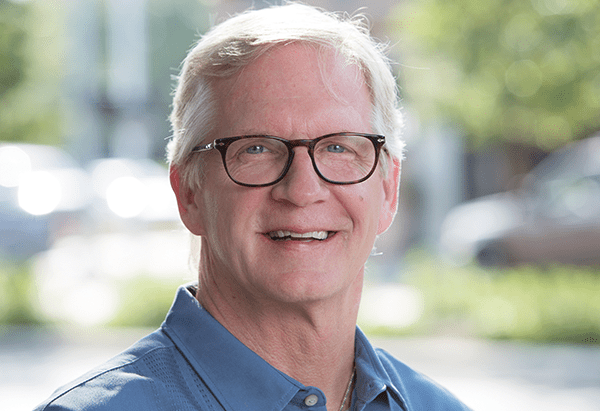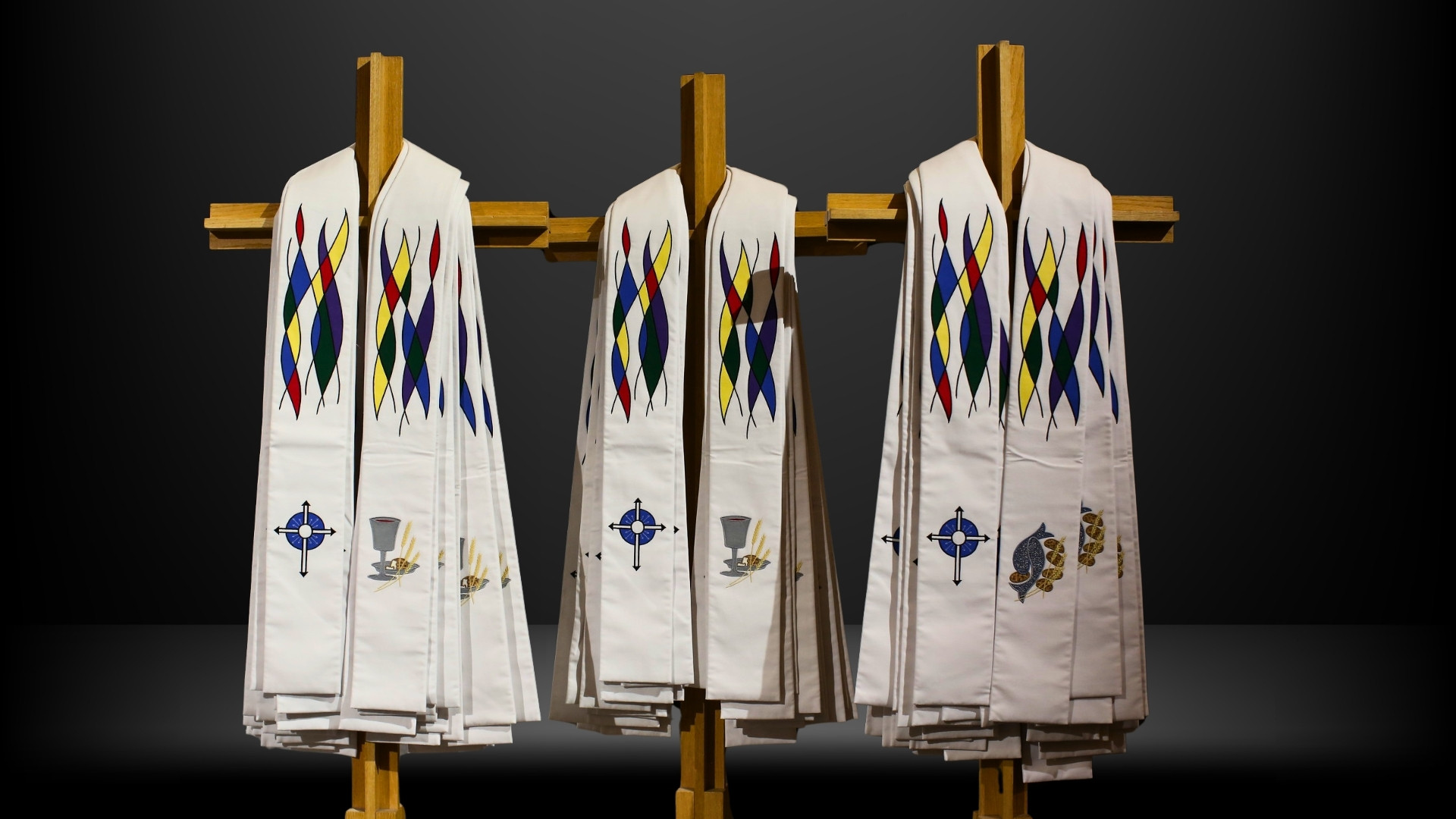[vc_row][vc_column][vc_column_text]

[/vc_column_text][/vc_column][/vc_row][vc_row el_class=”hero-header-text”][vc_column][vc_column_text]
Settling for a Fix-it God
In the face of a crushing diagnosis, can I believe the good news I’ve shared with others?
by Kevin Butcher | April 2, 2018
[/vc_column_text][/vc_column][/vc_row][vc_row][vc_column][vc_column_text]
My wife, Carla, and I had excitedly driven five hours across Michigan to Chicago to see our new grandson, Van, who had been born the day before. We were in the hospital gift shop when Carla received an unexpected call from her doctor. “You need to get out of the gift shop,” the doctor gently told her. “I’ve got some tough news to share with you.” I hurried with my best friend of forty years to a nearby empty conference room and the next words we heard were, “I’m sorry to tell you this, Carla, but your biopsy came back. You have cancer.”
After bowing our heads and blubbering a quick, desperate prayer, we staggered to the elevator in a daze and moments later stumbled into our daughter Andrea’s hospital room. Carla tenderly received her new grandson into her arms—and began to sob. Soon all five of us were huddled crying in the middle of a room designed for happiness. My son-in-law Dusty offered a heartfelt, hopeful prayer, thanking God for little Van and begging for Carla’s healing. Nevertheless, one word dominated my mind: devastation.
I wish I could say that in the weeks ahead I soon rebounded and transformed myself into some kind of spiritual superhero, an astounding blend of courage, empathy, and faith, with my complete attention focused on Carla and the long journey ahead. But what really happened is that to some extent, I imploded. For a couple of weeks I couldn’t even think about her without thinking about myself. Yes, I was worried about her pain, her internal journey, and her hopes and dreams—but the thought that overpowered me was, “If the worst happens, how am I going to live without my best friend?”
And as for God, well, I wasn’t talking to him. No way. Of course, I knew intellectually that serious illness was no respecter of person. But this was my Carla—the most gifted teacher and lover of children I had ever known, a woman who had a personal relationship with every flower and bird she’d ever seen and brought constant laughter and creative beauty to the world. Most important, she was the woman who had loved me like no other person in my life. No, I definitely wasn’t talking to God. At least not until I heard him say, “Don’t worry, son. She’s going to be all right.” Because what I thought I needed most from God is what many of us think we need from him when we’re hurting and desperate. I needed God to fix my pain.
But a couple weeks into my stare down with God, I found out what I really needed from him was something else. One day while reviewing a new book, I happened to read some fresh words on surrender.
And I broke.
I quickly threw aside the book, grabbed my journal, and immediately began scrawling my anger, confusion, and fear to God in jagged, searing strokes as I fell into God’s arms an exhausted, emotionally disheveled mess. After what seemed like hours, but was really only minutes later, this is what I heard from God’s heart to mine:
“Listen to me, son. Carla isn’t yours—she’s mine. You cannot love her well by gripping her tightly. To love her, you must surrender her to me. I’m not promising the outcome of Carla’s battle with cancer. You don’t get to know the future. What I promise is that I love you, and I will be with you and Carla, and I will never leave you. Ever.”
It hit me. As much as I wanted God to guarantee that I wouldn’t lose Carla to cancer, what I really needed to know was that in the valley of the shadow of death, God would be with me. Of course I wanted proof that she would live—here, now, with me and our kids and grandkids for another twenty-five years. But what I desperately needed to know was that in the hour of my most paralyzing fear, I…was…not…alone.
In that moment of clarity, theology I had shared with others over the years with whatever degree of understanding I had at the time began to land in my gut with fresh, comforting potential. Of course God never promised relief from all our pain. Until his kingdom is fully realized on earth, we are engaged in a war with an enemy who hates us and is trying to kill us. But what God did promise over and over is that he would be with us in the war-produced pain. In fact, in Jesus’s final hours on the planet, he boldly promised his closest followers, “And remember; I am with you always, to the end of the age” (Matthew 28:20).
In the days ahead, it occurred to me that if this truth was going to make a difference in the darkest night of my life, I needed a fresh understanding of what Jesus meant by those words. Until Carla’s cancer, I had unconsciously viewed Jesus’s presence somewhat cosmically and remotely. Even with all my theological education, I still had the impression that when Jesus ascended to heaven, he sort of took off like a first-century rocket ship and ended up at a mystical destination called “the right hand of the Father.” So yes, Jesus is “with us” in the sense that he sees all and knows all, even from light years away and, yes, he sent the Holy Spirit to be his stand-in—and I could go on and on.
But did I believe that Jesus himself was actually standing right next to me with his arms around me when we received the updates about Carla’s particular brand of cancer and Wikipedia said the prognosis was poor and my knees got weak and I thought my life was over because my best friend carried a death sentence in her body? No. I didn’t believe Jesus was actually there. But I needed to. If I was going to experience the peace Jesus promised in the midst of great trial, it had to be because he was literally with me, right beside me—not zooming in to my pain with his second Person of the Trinity vision from a distant heaven.
So, with a little help from N.T. Wright, I began to ponder. What if heaven isn’t somewhere in or even beyond our earthly heavens, but rather is another dimension of reality that coexists alongside ours and is very, very near? After Jesus’s resurrection, remember how one minute he was with his disciples in the home where they hid—and then he was gone? He was with Cleopas and his friend on the Emmaus road—and once again, he was gone. Where did he go? What if he was simply passing from earth to heaven and back again, across the thin veil that only seems to separate us from him?
And what if the heavenly “right hand of the Father,” Jesus’s position of honor and power where Paul says he prays for us, isn’t in a far-off corner of the universe, but instead is very, very near? When Jesus said, “I will be with you always,” what if he wasn’t speaking theoretically, metaphorically, or symbolically, but literally? In other words, what if in the midst of the spiritual battle, when shells are exploding all around and we’re bleeding out and all seems lost—what if we can know that we know that Jesus of Nazareth, the resurrected Lord, is actually with us?
When Jesus said, “I will be with you always,” what if he wasn’t speaking theoretically, metaphorically, or symbolically, but literally?
Today that is exactly what I believe. Only this reality of Jesus’s real presence with me has sustained me through the tormenting uncertainties of the last year. When Carla and I walked into the cancer ward at the University of Michigan to see the surgeon, Jesus walked beside us. When I waited four agonizingly long hours with Garth, Lil, and Rita for Carla to come through a grueling surgery, Jesus sat with me. When I watched the chemotherapy drip into Carla’s vulnerable body for the first time and I wanted to take the poison for her but I couldn’t, Jesus embraced me in my tears and held Carla in her fear. And when months later we sat with the doctor to hear the results of our first post-treatment CAT scan and my heart was pounding through my chest, Jesus Christ, the resurrected One, cradled me and my best friend on his lap and whispered in our ear that he loved us and was with us and would never leave us. Ever.
Truthfully, the thought that I might someday lose Carla—or one of my daughters, their husbands, or a precious grandkid—is still my greatest fear. Some days I still wonder if I could survive. But then most days I remember this: the same Jesus who promised to be with the disciples—and was with them even in their horrific martyrdom and exile—that Jesus is also with me. Not as a figure of speech, but for real. Just like he’s with me this very moment as I write these final words. He’s right here. And he’s not just with me. He’s with you. Just across the veil. And he promises never to leave us. Ever.
[/vc_column_text][/vc_column][/vc_row][vc_row][vc_column][/vc_column][/vc_row][vc_row el_class=”cc-author-bio”][vc_column width=”1/4″][vc_column_text] [/vc_column_text][/vc_column][vc_column width=”3/4″][vc_column_text]
[/vc_column_text][/vc_column][vc_column width=”3/4″][vc_column_text]
About the Author
[/vc_column_text][vc_separator color=”black” style=”dotted”][vc_column_text]
Kevin Butcher is the founding pastor of Hope Community Church, a Covenant congregation in Detroit, Michigan. He is the author of Choose and Choose Again: The Brave Act of Returning to God’s Love. He is also the director of Rooted Ministries, a group that intentionally comes alongside pastors to give them a safe place to be real and to provide the love and care they need. And he can’t stand onions or Brussel sprouts.
[/vc_column_text][/vc_column][/vc_row]














